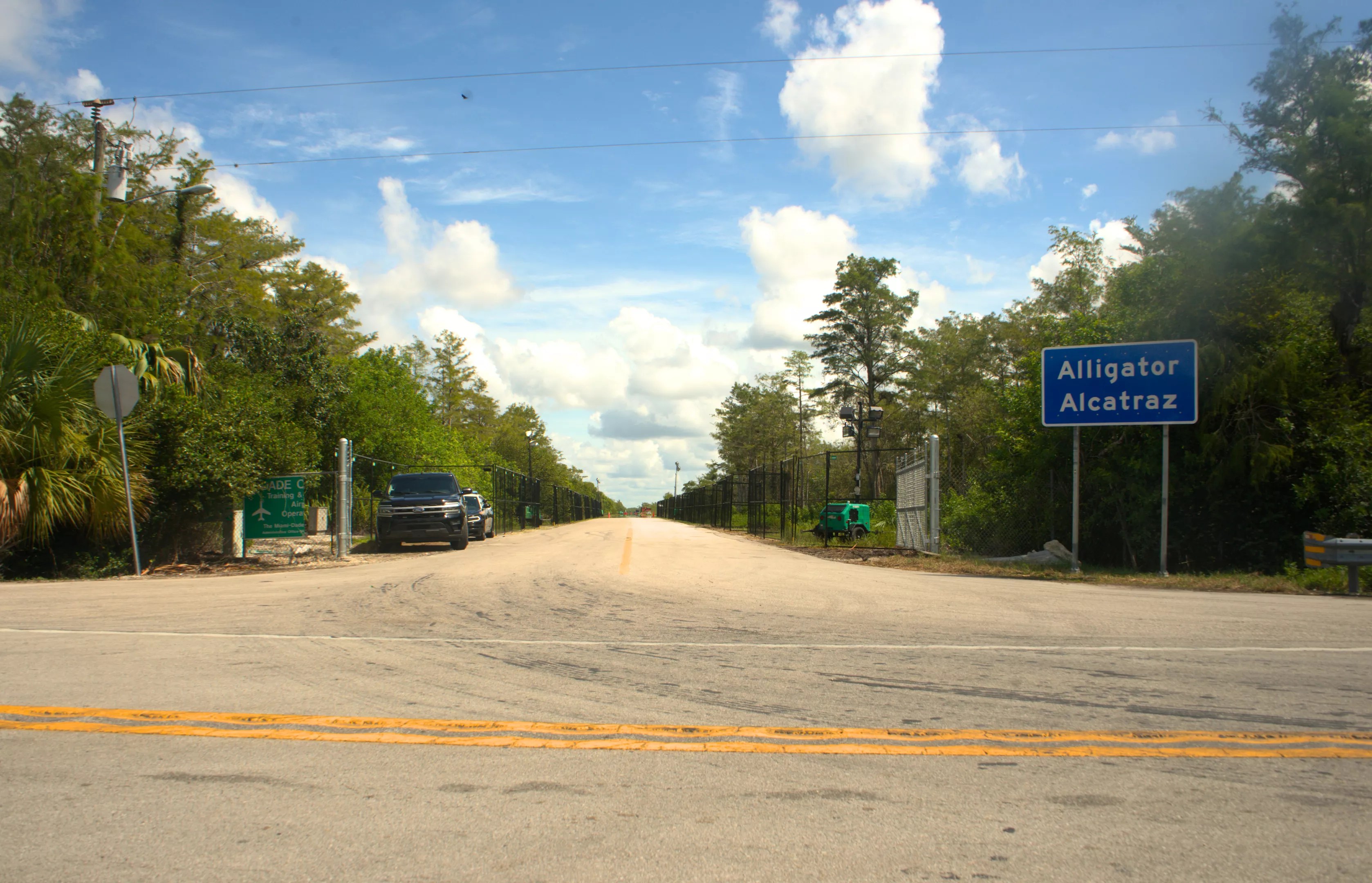
Photo by B. Scott McLendon

Audio By Carbonatix
Alligator Alcatraz, the controversial state-run immigration detention center in the Florida Everglades, could be empty within days, according to an email shared with the Associated Press.
Although a federal judge recently gave Florida officials until October to shutter the facility, Florida Division of Emergency Management (FDEM) executive director Kevin Guthrie wrote in an August 22 email to South Florida-based Rabbi Mario Rojzman that “we are probably going to be down to 0 individuals within a few days.” (The email exchange was reportedly about providing chaplaincy services at the facility).
Rojzman and Guthrie’s executive assistant, who sent the original email to Guthrie, confirmed the authenticity of the exchange to the Associated Press.
Neither Guthrie nor a spokesperson for FDEM, the state agency that has overseen the site, responded to New Times‘ request for comment via email by the time of publication.
Guthrie’s email appeared to come a day after U.S. District Judge Kathleen Williams issued an 82-page ruling that ordered the state to begin dismantling the site over environmental concerns. The August 21 order prohibits the state from admitting new detainees to the site and orders officials to begin tearing down parts of the hastily constructed tent city.
The decision marked a major blow for Gov. Ron DeSantis and President Donald Trump’s administration, who touted the project as a model for other states.
The ruling came in response to a federal lawsuit filed by Friends of the Everglades and the Center for Biological Diversity, who challenged federal, state, and Miami-Dade County officials ahead of Alligator Alcatraz’s opening, arguing the project skipped federally required environmental review and denied the public a chance to weigh in.
State officials have signed more than $245 million in contracts for building and operating the facility, which FDEM quickly constructed at the site at the remote Dade-Collier Training and Transition Airport, a little-used airstrip in the middle of the swampy Everglades. Opened on July 1, the Trump administration has touted the facility as a place to hold the “worst of the worst” criminals before removing them from the country.
Since the facility’s opening, much about its operations has remained unclear.
State officials have released little information about the detainees being held inside, and immigration attorneys, who’ve had limited access to their clients at the facility, have called it a “black hole.” The state has quietly removed related contracts from public databases, and two federal judges in Miami recently asked the DeSantis and Trump administrations to clarify one fundamental question: Who is actually running this place?
This is a breaking story and will be updated as events warrant.